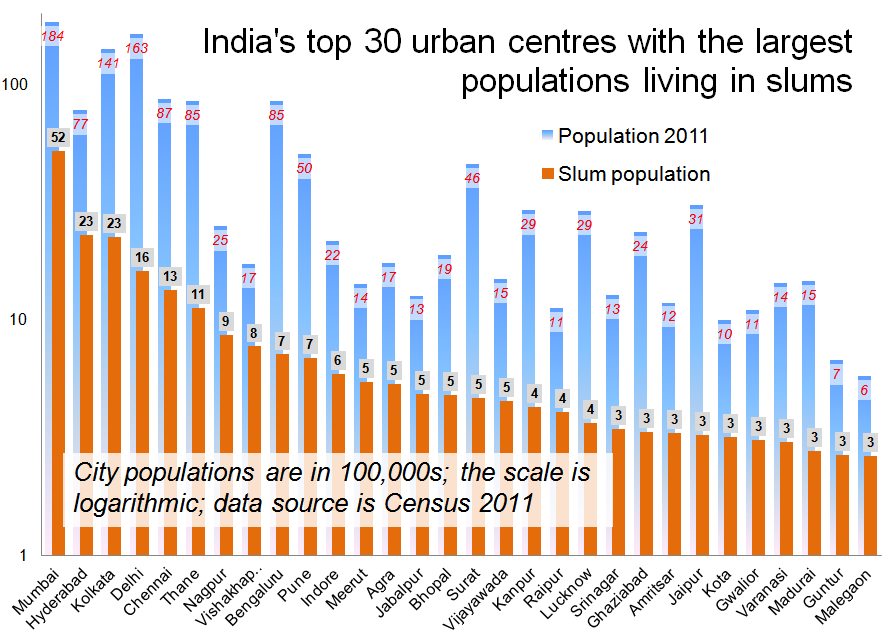Difference between revisions of "Rural development rural development activity1"
Jump to navigation
Jump to search
Gurumurthy (talk | contribs) |
Gurumurthy (talk | contribs) |
||
| Line 11: | Line 11: | ||
==Relevant local connections - people, places and materials== | ==Relevant local connections - people, places and materials== | ||
| + | #Have people in your village migrated to a nearby or far away city/town? Can you discuss with their relatives, why they migrated? | ||
| + | #If you live in a urban centre, do you see people who have come from rural areas? | ||
| + | |||
==Website interactives/ links== | ==Website interactives/ links== | ||
People who migration to urban centres, are often unable to afford housing which is expensive in urban areas. Hence they stay in very poor conditions, often in slums. See image below for the percent of people staying in slums in India | People who migration to urban centres, are often unable to afford housing which is expensive in urban areas. Hence they stay in very poor conditions, often in slums. See image below for the percent of people staying in slums in India | ||
Revision as of 17:11, 26 August 2014
Activity - discussion and study of migration
Estimated Time
Materials/ Resources needed
- Web resources on migration, in Karnataka, in India and across the world
- News paper articles on migration
Prerequisites/Instructions, if any
Multimedia resources
Relevant local connections - people, places and materials
- Have people in your village migrated to a nearby or far away city/town? Can you discuss with their relatives, why they migrated?
- If you live in a urban centre, do you see people who have come from rural areas?
Website interactives/ links
People who migration to urban centres, are often unable to afford housing which is expensive in urban areas. Hence they stay in very poor conditions, often in slums. See image below for the percent of people staying in slums in India

Process
Students in teams can study the issue of migration in Karnataka. Students can make a presentation on aspect covered in the questions below.
What questions can you ask
- What is migration
- Which places do people migrate from (out migrate)?
- Which places do people migrate to?
- What occupations / livelihoods to people practise in their original inhabitations / places
- What kind of occupations do people get in the place they migrate to?
- Are people better off with the migration? what are the benefits and the losses to the migrants
Evaluation – (questions for assessment of the child)
Migration is a very complex social phenomena, what are its causes and how can we address the causes as well as the effects of migration?
Question Corner
- Education Department of Karnataka has a programme to help children of migrants go to school, specially those who move from place to place (construction labour) called 'tent schools'. How are these schools different from your own school
- All over the world, humans migrate. What are the reasons for migration? Is any migration forced? What do we mean by 'human trafficking'
- There is migration from Yadgir to Bangalore. There is migration (of software engineers) from Bangalore to USA? What are the differences between these two kinds of migrations?
- Migration is leading to the rapidly growing cities and towns in India. Is this process of rapid urbanisation good? What are the benefits and ill effects of this process? The Government of India, recently announced a programme for 100 smart cities. Debate this idea